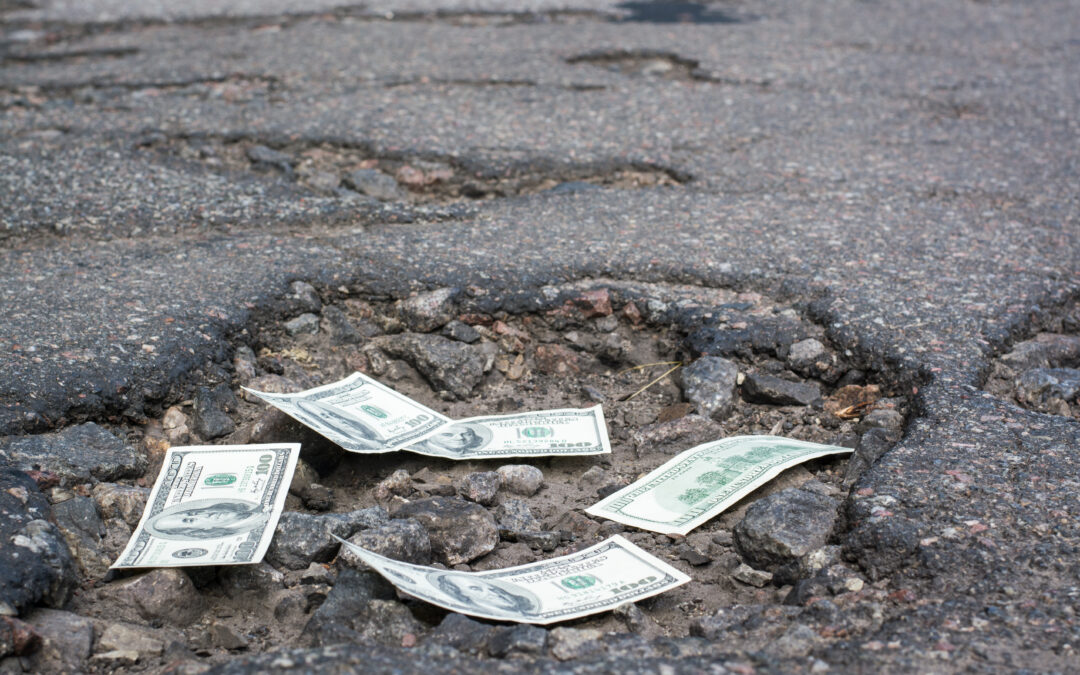Last December, the Citizens Research Council of Michigan urged the state to eliminate the sales tax on motor fuel.
“With a large COVID-induced revenue windfall at its disposal, now is the perfect time for state policymakers to implement an often-discussed tax reform to generate more revenue for Michigan’s road infrastructure,” Bob Schneider wrote in a blog post on the CRC site.
Schneider said those revenue surpluses would make it possible for Michigan to eliminate the sales tax on motor fuel and replace it with “a revenue-neutral increase in the motor fuel tax rate while drawing on the surpluses to mitigate budget holes inherent in the tax shift.”
The month that CRC proposal was published online, Gov. Gretchen Whitmer told Bridge Michigan she was not planning to try to raise fuel taxes after lawmakers rejected her 2019 proposal for a 45-cent-per-gallon hike.
Instead, Whitmer went for a five-year, $3.5 billion “Rebuilding Michigan” bonding program that didn’t require legislative approval.
Some may reject the CRC idea — and few can stomach the 45-cent-per-gallon hike that Whitmer pitched in 2019. But one fact is abundantly clear: State legislators need to take some action on this issue while revenue surpluses make such action possible.
Michigan currently generates about $1.5 billion in annual fuel tax revenue to help pay for road repairs. The money comes from federal fuel tax, state fuel tax, license and registration fees.
Schneider explained it this way: “Michigan’s road funding efforts are hampered in part by a tax policy that includes motor fuel purchases in the base of the state’s sales tax. As a result, a significant amount of tax revenue from fuel sales goes, not to road maintenance, but to other areas of the state budget.
“Past proposals to untangle the separate sales and motor fuel taxes imposed on fuel purchases faced challenges, based on the budget holes the tax reform created.”
With a revenue surplus as a so-called safety valve, the state would be able to plug those budget holes and implement substantive funding reform.
Estimates had pointed to a $3.9 billion-per-year gap between the cost of maintaining the state’s roads and how much the state currently spends on road repairs, according to Bridge Michigan.
But there’s an exponential cost that grows with legislative delay.
New estimates, even taking into account the additional state and federal funds invested in infrastructure, conclude that failing to fix and maintain existing roads before they deteriorate further will continue to significantly increase road funding — potentially up to $11 billion annually.
It’s important to note that we’re on a collision course with some obvious changes that lie ahead. One example? Electric vehicles.
Because Michigan’s main source of road funding comes from fuel taxes, the state missed out on an estimated $50 million from electric vehicle drivers between 2019 and 2021, according to Anderson Economic Group for the County Road Association of Michigan.
It’s a shortfall that will only grow as more drivers make the switch to electric vehicles and the state does nothing to change the current funding formula.
Meanwhile, the Democrat-controlled Legislature has been busy pursuing its progressive priorities. We’re hearing no sense of urgency on the road funding conundrum.
“Fix the damn roads” was a slogan that resonated in Michigan for a good reason — and it was understood by voters as more than a slogan. It was a promise.
Now, five years later, essential roads across the state are not just in bad shape; they’re in critical condition. The cost to repair them is compounding as conditions worsen. Yet leaders and legislators seem to lack the political will to move this mandate to the top of the state’s agenda. They need to do so immediately.
So we say to them what was said to us: Fix the damn roads.
That slogan needs to become a reality for Michigan, not an epitaph.
This article originally appeared in the Traverse City Record-Eagle. For more, click here.

